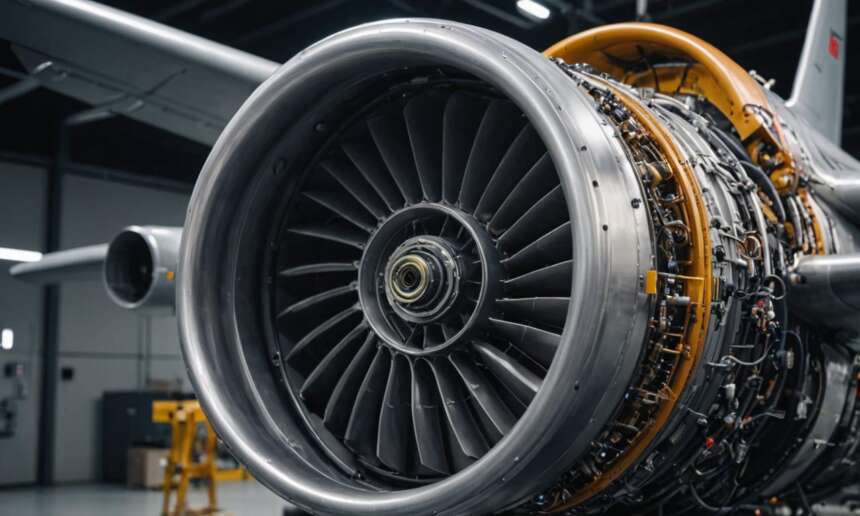If you are fascinated by airplanes and have a passion for mechanics and engineering, pursuing a career as an aircraft engineer might be the perfect fit for you. Aircraft engineers play a crucial role in ensuring the safety, functionality, and efficiency of aircraft, making it a rewarding and challenging career choice.
Education Requirements
One of the primary steps to becoming an aircraft engineer is obtaining the necessary education and qualifications. Typically, this involves earning a bachelor’s degree in aerospace engineering, mechanical engineering, or a related field from an accredited institution. These programs provide a comprehensive understanding of aerodynamics, propulsion systems, materials science, and aircraft design.
Gain Experience
While academic qualifications are essential, gaining practical experience is equally valuable. Consider pursuing internships or co-op programs with aerospace companies or airlines to gain hands-on experience in aircraft maintenance, repair, and inspection. This real-world experience will complement your academic knowledge and make you more competitive in the job market.
Obtain Licensure
Depending on your location and the specific role you aspire to, you may need to obtain licensure or certification. For example, in the United States, aircraft engineers must obtain certification from the Federal Aviation Administration (FAA) to work on aircraft or supervise maintenance operations. This typically involves passing exams and meeting experience requirements.
Specialize
Consider specializing in a particular area of aircraft engineering to distinguish yourself and enhance your career prospects. Specializations can range from avionics and propulsion systems to structures and aerodynamics. By becoming an expert in a specific field, you can become invaluable to employers seeking individuals with specialized skills.
Continuing Education
The field of aviation is constantly evolving with advancements in technology and regulations. As such, it’s essential for aircraft engineers to engage in continuing education and professional development to stay abreast of industry trends and best practices. This may involve attending workshops, earning additional certifications, or pursuing advanced degrees.
Networking
Building a strong professional network can significantly benefit your career as an aircraft engineer. Attend industry conferences, join professional organizations such as the American Institute of Aeronautics and Astronautics (AIAA) or the Royal Aeronautical Society (RAeS), and connect with fellow professionals in the field. Networking can lead to job opportunities, mentorship, and valuable insights into the industry.
Stay Committed
Becoming an aircraft engineer requires dedication, perseverance, and a genuine passion for aviation. The journey may present challenges along the way, but staying committed to your goals and continuously striving for excellence will ultimately lead to a rewarding and fulfilling career in aircraft engineering.
In conclusion, becoming an aircraft engineer is a rewarding career path for those with a passion for aviation and a strong aptitude for engineering. By obtaining the necessary education, gaining practical experience, and staying committed to professional development, you can embark on a successful career in this dynamic and exciting field.
Frequently Asked Questions
Below are some common questions aspiring aircraft engineers may have:
| Question | Answer |
|---|---|
| 1. Can I become an aircraft engineer with a degree in a related field? | Yes, while aerospace engineering or mechanical engineering degrees are typical, related fields such as electrical engineering or materials science can also provide a foundation for a career in aircraft engineering. |
| 2. How long does it take to become an aircraft engineer? | The time to become an aircraft engineer can vary based on factors such as educational path, specialization, and individual circumstances. Typically, it takes around four years to complete a bachelor’s degree, and additional time may be needed for gaining experience and obtaining licensure. |
| 3. Is it necessary to obtain certification? | In many regions, certification or licensure is required to work as an aircraft engineer, especially if you’ll be directly involved in aircraft maintenance or supervision. Research the specific requirements in your area or the area where you intend to work. |
| 4. What are some areas of specialization within aircraft engineering? | Specializations in aircraft engineering can include avionics, propulsion systems, structures, aerodynamics, and more. Choosing a specialization can help tailor your career path to your interests and enhance your expertise in a particular area. |
| 5. How important is networking in the field of aircraft engineering? | Networking is highly beneficial in the aviation industry as it can lead to job opportunities, mentorship, and access to valuable industry insights. Building a strong professional network can significantly enhance your career prospects as an aircraft engineer. |
Additional Tips for Success
- Stay updated on industry news and technological advancements.
- Seek out mentorship opportunities with experienced professionals.
- Consider pursuing advanced degrees or certifications for career advancement.
- Develop strong problem-solving and critical-thinking skills.




